What Are the Most Common Dental Diseases in Seniors?
- 1. Overview of Dental Diseases in Seniors
- 2. Gum Disease (Periodontal Disease)
- 3. Tooth Decay in Seniors
- 4. Dry Mouth (Xerostomia)
- 5. Tooth Sensitivity in Older Adults
- 6. Oral Health Tips for Seniors
1. Overview of Dental Diseases in Seniors
As we age, our oral health requires special attention, particularly since seniors are more susceptible to various dental diseases. These diseases can affect the teeth, gums, and mouth, leading to discomfort and serious health issues. It is essential for seniors to be aware of these risks and take proactive measures to maintain their oral health.
This article covers the most common dental diseases in seniors, including gum disease, tooth decay, dry mouth, and tooth sensitivity. We will explore each of these conditions, their causes, and prevention strategies.
2. Gum Disease (Periodontal Disease)
Gum disease is one of the most common dental issues among seniors. It occurs when plaque and tartar build up on the teeth, leading to infection and inflammation of the gums. There are two stages of gum disease: gingivitis and periodontitis. In gingivitis, the gums become inflamed but are not yet severely damaged. In periodontitis, the infection can spread deeper into the tissues, causing tooth loss and other serious health concerns.
Symptoms of gum disease include swollen gums, bleeding while brushing, bad breath, and gum recession. Regular dental cleanings and proper brushing and flossing can help prevent gum disease. Seniors should also visit their dentist regularly to monitor their gum health.
3. Tooth Decay in Seniors
Tooth decay, or cavities, is a prevalent issue among older adults. As people age, their tooth enamel can wear down, increasing the risk of tooth decay. In addition, seniors may have more fillings, crowns, and other dental work, which can also be prone to decay over time.
Tooth decay is caused by the buildup of plaque and bacteria that attack the enamel of the teeth. Symptoms include tooth pain, visible holes in the teeth, and sensitivity to hot or cold foods and beverages. Seniors can protect their teeth by brushing with fluoride toothpaste, limiting sugary foods and drinks, and visiting the dentist for regular checkups.
4. Dry Mouth (Xerostomia)
Dry mouth, or xerostomia, is a common problem for seniors, often caused by medications, aging, or certain health conditions. When the mouth doesn’t produce enough saliva, it can lead to difficulty swallowing, speaking, and even increased risk of cavities and gum disease. Saliva is essential for neutralizing acids and washing away food particles, so a lack of it can leave the teeth vulnerable to decay.
To alleviate dry mouth, seniors should drink plenty of water, use saliva substitutes, and avoid caffeine and alcohol. Maintaining good oral hygiene is also critical in preventing tooth decay and gum disease associated with dry mouth.
5. Tooth Sensitivity in Older Adults
Tooth sensitivity is a common issue among seniors and can be caused by a variety of factors, including gum recession, worn-down enamel, or tooth decay. This condition is characterized by sharp pain or discomfort when consuming hot, cold, or sweet foods and drinks.
To treat tooth sensitivity, seniors should use desensitizing toothpaste and visit their dentist for a thorough evaluation. Addressing the root cause of sensitivity, such as gum recession or decay, can significantly improve comfort and oral health.
6. Oral Health Tips for Seniors
Maintaining good oral health is essential for seniors to enjoy a healthy, active lifestyle. Here are some tips to keep your teeth and gums healthy as you age:
- Brush Twice a Day: Use a fluoride toothpaste to remove plaque and bacteria, especially after meals.
- Floss Daily: Flossing helps remove food particles and plaque from between the teeth, reducing the risk of gum disease and tooth decay.
- Limit Sugary Foods: Reduce the intake of sugary foods and beverages to prevent tooth decay.
- Stay Hydrated: Drinking water throughout the day can help combat dry mouth and keep your mouth moist.
- Visit the Dentist Regularly: Regular dental checkups help catch early signs of problems and ensure your teeth and gums are in good shape.
By following these tips, seniors can maintain strong, healthy teeth for years to come.

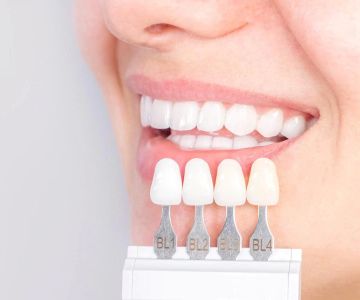

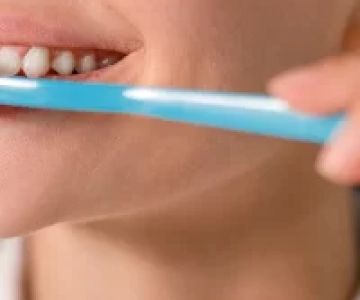
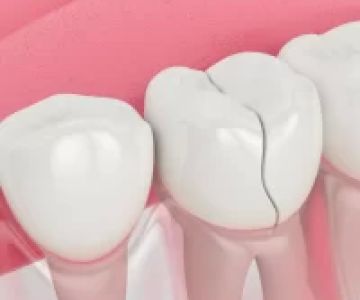
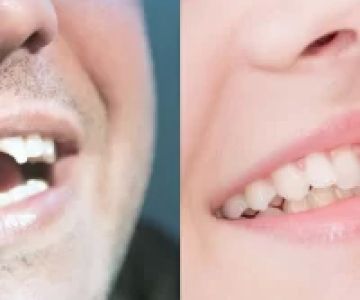
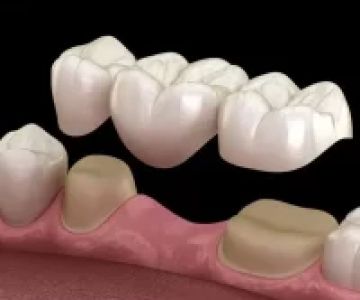
 Risas Dental and Braces - Boulder Crossings4.0 (312 review)
Risas Dental and Braces - Boulder Crossings4.0 (312 review) South Mississippi Smiles - Gulfport4.0 (454 review)
South Mississippi Smiles - Gulfport4.0 (454 review) Greencastle Dental4.0 (653 review)
Greencastle Dental4.0 (653 review) Dr. Jeffrey C. Klein DDS5.0 (11 review)
Dr. Jeffrey C. Klein DDS5.0 (11 review) Smile Dental Boutique | Mission Viejo Dentist4.0 (70 review)
Smile Dental Boutique | Mission Viejo Dentist4.0 (70 review)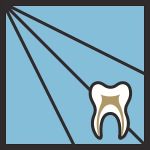 Central Pennsylvania Endodontics, LLC5.0 (241 review)
Central Pennsylvania Endodontics, LLC5.0 (241 review) The Importance of Oral Health Education During Pregnancy for a Healthy Pregnancy
The Importance of Oral Health Education During Pregnancy for a Healthy Pregnancy Best Tips for Brushing Your Teeth Properly for Healthy Gums: Essential Techniques for Oral Health
Best Tips for Brushing Your Teeth Properly for Healthy Gums: Essential Techniques for Oral Health Why Skipping Dental Checkups Can Lead to Bigger Oral Health Problems
Why Skipping Dental Checkups Can Lead to Bigger Oral Health Problems Advantages of Porcelain Dental Restorations
Advantages of Porcelain Dental Restorations How Can Diabetes Cause Tooth and Gum Problems? Preventing and Managing Oral Health Issues
How Can Diabetes Cause Tooth and Gum Problems? Preventing and Managing Oral Health Issues Healthy Habits for Promoting Good Oral Health and Hygiene: Tips for a Healthy Smile
Healthy Habits for Promoting Good Oral Health and Hygiene: Tips for a Healthy Smile